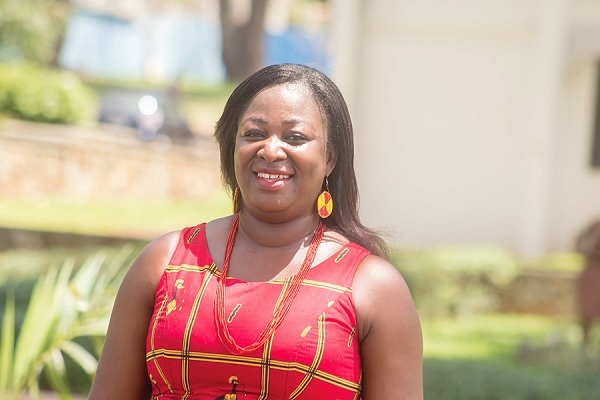
Let's refrain from politics of insults - Dr Wiafe-Akenten
A Linguist and a lecturer has attributed the high rate of politics of insults in the country to the apparent lack of appreciation for the mother language and the Ghanaian culture.
According to Dr Mrs Nana Anima Wiafe-Akenten, who is the head of the Akan-Nzema Department of the College of Languages Education, Ajumako Campus of the University of Education Winneba (UEW), a lot of people lacked the basic tenets of the indigenous language which teaches people not to engage in insults, especially on a public platform.
That, she said, had been the main cause of the phenomenon in the country.
Dr Wiafe-Akenten, who is also the first holder of PhD in Twi, was speaking to The Mirror in an interview recently in Accra on the need for Ghanaians to learn and speak their mother tongue.
“It has proven that if you learn your mother tongue you get to know the basic tenets of the Ghanaian culture which frowns on engaging in open insults or character assassination, something we see in our political space now.
“Because we have taken our language and culture for granted, parents don’t speak and teach much of their indigenous languages embedded in our culture with their children.
“We have allowed the infiltration of alien cultures and that is destroying ours which frowns on insults. So children lack a deep appreciation of the local language, when to speak, how to speak it and the occasion to present it.
“While learning the local language children will get to know about etiquettes, politeness, speeches, taboo expressions, avoidance expressions and idioms. They will know these basic tenets of public speaking, all of which are embedded in the indigenous language,” she said.
Public concerns
Ghana’s political engagements are replete with many examples of those who engage in vituperative language in political discourse.
The phenomenon has resulted in calls and concerns by a lot of stakeholders, including the clergy, at the seeming lack of respect among politicians who usually engage in politics of insults and character assassination as that is not helping the nation.
Instead of engaging in cutting-edge issues confronting the nation, Dr Wiafe-Akenten said they were only interested in passing derogatory remarks against their political opponents as though they were enemies.
“Now, it has become so obvious that if you can insult people very well, you are awarded a position when your government comes to power, and that is bad,” she said.
Effects of politics of insults
Dr Wiafe-Akenten indicated that language was powerful and delicate — it can make and unmake a person, it can break a nation — it was language that led to the Rwandan genocide.
“Because we are failing to teach our children, a lot of them lack wisdom which leads to the lack of maturity among many of the youth and that translates into our politics.
“Politicians mostly speak their indigenous languages during campaigns. If you speak people’s language, they are able to easily identify or flow with you.
“We can start from somewhere by making Ghanaian languages compulsory subjects from the kindergarten (KG) to the senior high school (SHS) level,” she said.
Don’t give platform
As the nation gears up for the December polls, Dr Wiafe-Akenten urged the media not to give their platforms to politically exposed individuals to spew insults at their political opponents, a situation she said could lead to tensions in the country.
She emphasised that it was everybody’s responsibility to guard against insulting comments by politicians during their campaigns.

